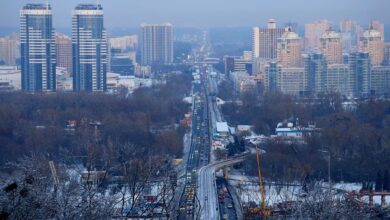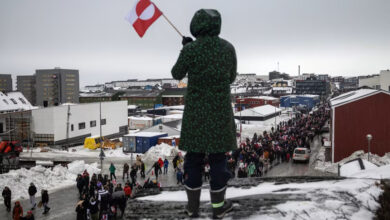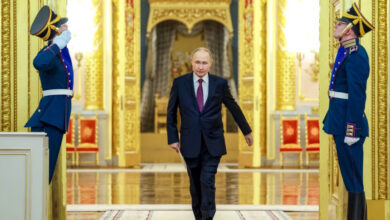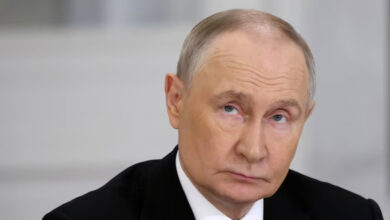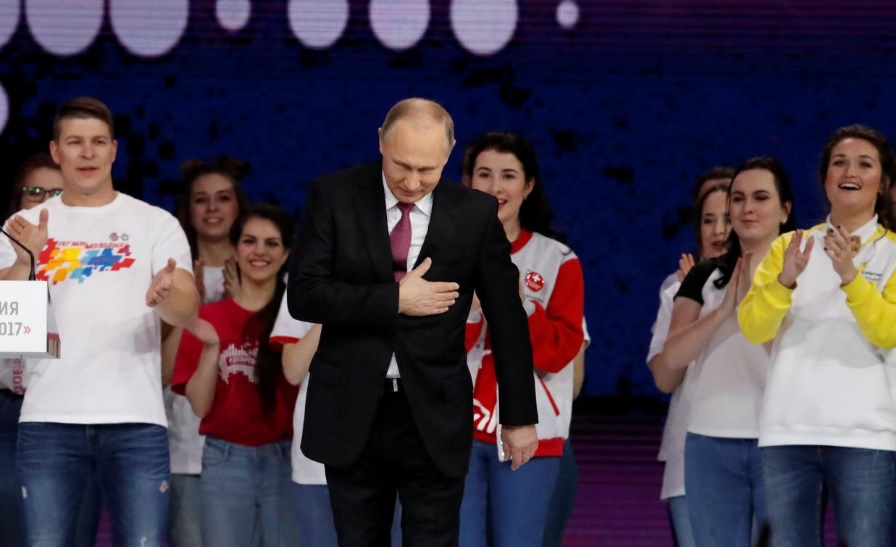
President Vladimir Putin confirmed Russia’s worst kept political secret on Wednesday, saying he would run for re-election in March 2018 – a contest he seems sure to win comfortably and extend his grip on power into a third decade.
Putin, 65, has been in power, either as president or prime minister, since 2000, longer than veteran Soviet leader Leonid Brezhnev and outstripped only by dictator Josef Stalin.
If he wins what would be a fourth presidential term, he will be eligible to serve another six years until 2024, when he turns 72.
Backed by state TV, Putin regularly enjoys approval ratings of around 80 percent, and his decision to run for re-election – which he announced at a car-making factory in the Volga river city of Nizhny Novgorod – was widely expected.
“I will put forward my candidacy for the post of president of the Russian Federation,” Putin said, in answer to a question from a factory worker who told the Russian leader that “everyone without exception” in the hall supported him.
“There’s no better place or opportunity to make this announcement,” said Putin. “I‘m sure that everything will work out for us.”
The workers then broke into a chant of “Russia!”
Allies laud Putin as a father-of-the-nation figure who has restored national pride and expanded Moscow’s global clout with interventions in Syria and Ukraine.
Critics accuse him of overseeing a corrupt authoritarian system and of illegally annexing Ukraine’s Crimea in 2014, a move that isolated Russia internationally.
Opposition leader Alexei Navalny, who is unlikely to be allowed to run against Putin due to what he says is a trumped up criminal conviction, said Putin was overstaying his welcome.
“He wants to be in power for 21 years,” Navalny wrote on social media. “To my mind, that’s too long. I suggest we don’t agree.”
Despite the Central Election Commission ruling him ineligible to stand, Navalny has organized mass protests and set up campaign headquarters across the country, hoping he can pressure the authorities into allowing him to stand.
No obvious successor
The challenge for Putin though is not other candidates – nobody, including Navalny, looks capable of unseating him.
Instead, his toughest task will be to mobilize an electorate showing signs of apathy to ensure a high turnout which in the tightly-controlled limits of the Russian political system is seen as conferring legitimacy.
Whilst next year’s election in March is devoid of real suspense about who will win, what follows is more unpredictable as attention will turn to what happens after Putin’s final term – under the current constitution – ends.
There is no obvious successor. Many investors say the lack of a clear succession plan, and likely jockeying for position among Russian elites for dominance in the post-Putin era, is becoming the biggest political risk.
Putin, once re-elected, will have to choose whether to leave Dmitry Medvedev as prime minister, or to appoint someone else. That decision will trigger a round of intrigue over the succession, as whoever holds the prime minister’s post is often viewed as the president’s heir apparent.
In the meantime, perhaps the Kremlin’s biggest task will be to make it look as if Putin faces real electoral competition.
In a move critics suspect is a Kremlin ploy to split the liberal opposition vote while injecting a patina of interest, TV celebrity Ksenia Sobchak, the daughter of Putin’s political mentor, is standing against him, offering voters unhappy with his rule someone to back.
A political ingénue, Sobchak has scant chance of winning. Kremlin spokesman Dmitry Peskov has denied her candidacy is a Kremlin ploy. Sobchak said on Wednesday that Putin would probably win “as always,” but that she still planned to run to represent people who wanted change.
Otherwise, Communist leader Gennady Zyuganov, 73, and nationalist firebrand Vladimir Zhirinovsky, 71, – both political retreads – are likely to run.
They are broadly supportive of the Kremlin’s policies and have repeatedly run for president, behavior critics say is a ruse to create the illusion of genuine political choice.
Putin draws much of his support from outside the two biggest cities – Moscow and St Petersburg – where many credit him with raising their living standards despite an economic crisis Russia is only now recovering from.
State TV, where many Russians still get their news, affords Putin blanket and uncritical coverage while ignoring or denigrating his opponents.

